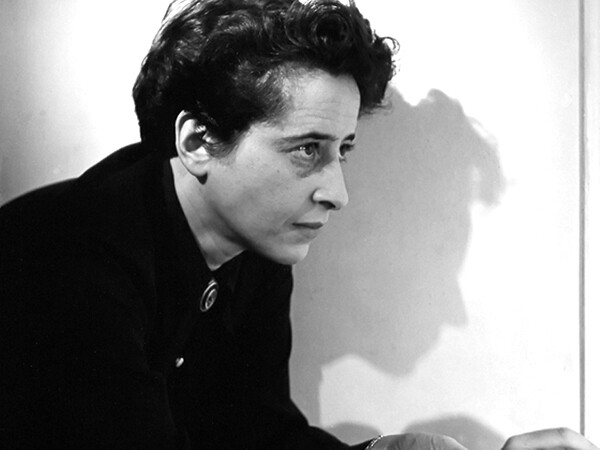PNCA
1241 NW Johnson St.
Portland OR 97209
The MA in Critical Theory and Creative Research Program is pleased to announce the winners of the 2013 Hannah Arendt Prize on the theme of “On Art and Disobedience; Or, What Is an Intervention?” The competition drew 255 entries from 34 countries around the globe.
The judges awarded first place to Stéphanie Bertrand of Thessaloniki, Greece, and Nate Harrison of Brooklyn, New York, for their essays “Dropouts” and “Immanence of Intervention, Revival of Critique,” respectively. Bertrand was singled out for her nail-on-the-head exemplification argument that art operates increasingly as a form of intervention, more specifically, as immunity. More cautionary, Harrison addresses the problem of the growing abyss between operationalism and expression, warning against the squandering of our capacity for critique in the face of capitalism’s skills at redeploying interventions in form alone. Bertrand and Harrison will share the prize and the $5,000 cash award.
Second place was awarded to Marc Lombardo for his essay “On Power, Truth, and Living Statues.” Without once mentioning the word intervention, the piece makes a simple and powerful point for stillness at a time when frenzied activity is often taken as a sign in and of itself of political efficacy. Third place went to Arnaud Gerspacher for “Interventions,” with its call for felicitous intervention. Singled out for Special Mention was S. L. Irani-Silberman’s “Interrupting Invisibilities and Bridging Worlds: An Essay on the Work of turkopticon.differenceengines.com,” the judges citing Turkopticon as a powerful digital intervention.
We note what may be obvious: All of the submissions bear witness to the power of the labor of thought and constitute, in and of themselves, interventions. Thought, Arendt reminded us again and again, is a fragile thing, and with this fact she chose to conclude The Human Condition: “Thought, finally—which we, following the premodern as well as the modern tradition, omitted from our reconsideration of the vita activa—is still possible, and no doubt actual, wherever men live under the conditions of political freedom.”
The temptation of cynicism is strong and compelling in dark times, if sometimes subtly encoded; and it is worth remarking that many of the submissions to the Hannah Arendt Prize recognize this danger even as they suggest that the future can no longer be taken as a given. The ramifications of such a situation for human life, thought, and freedom, have yet to be understood or even registered. In light of Fukushima and genetic engineering, the future itself may require an intervention.
In closing, we extend thanks to all who submitted work for the 2013 Hannah Arendt Prize and to its judges—Claire Bishop, CUNY; Judith Butler, UC Berkeley and EGS; Barbara Duden, Leibniz Universität Hannover; Julia Kristeva, Université Paris Diderot, Paris 7; Heike Kühn, Film Critic; and Martha Rosler, Artist. In you, the life, work, and legacy of Hannah Arendt live on.
All of the winning essays as well as additional comments can be read on PNCA’s Untitled at untitled.pnca.edu/articles/show/6758.
About the MA in Critical Theory and Creative Research
The MA in Critical Theory and Creative Research (CT+CR), the first of its kind in the U.S., is an accelerated, 45-credit, seminar-based program (one year + summer intensive) that prepares students for opportunities at the intersection of art, theory, and research. Located in a major center of creative risk-taking and social experimentation, the program combines the study of critical theory as a mode of socio-political critique concerning human meaning and agency with creative research as a largely process-driven form of inquiry, forcing both theory and research in new directions within the context of a 21st-century art school. The program is devoted to people and ideas and to a rethinking of the present and future of cultural production; of arts-based research and research-based arts; of curatorial practice, documentary, and the Archive; and of social and political reconfiguration in relation to major sites of contemporary contestation. Additional information can be found at: www.pnca.edu/programs/mfa/c/criticaltheory.

